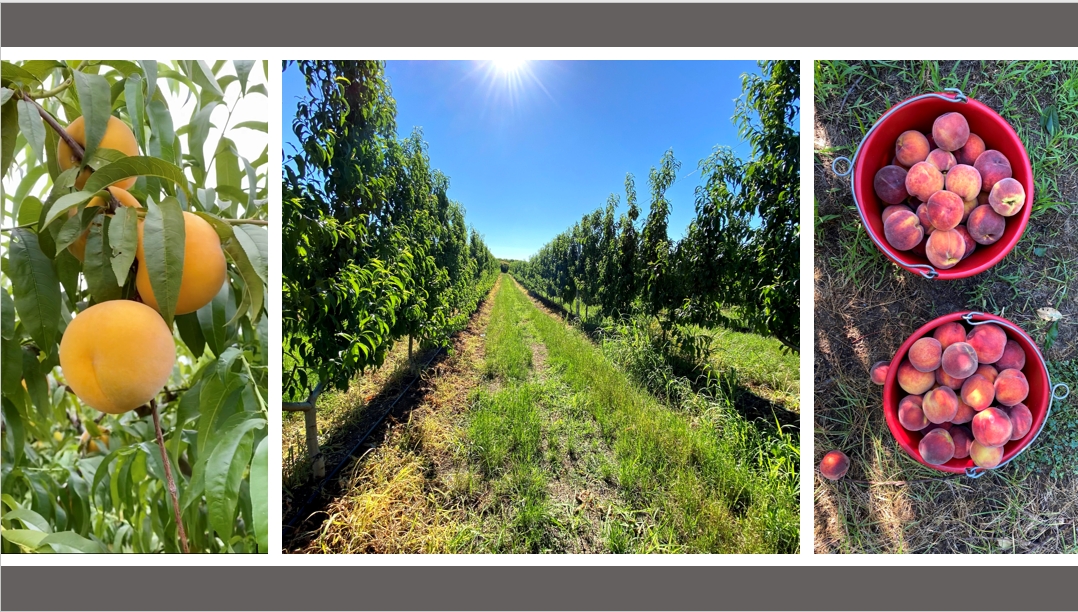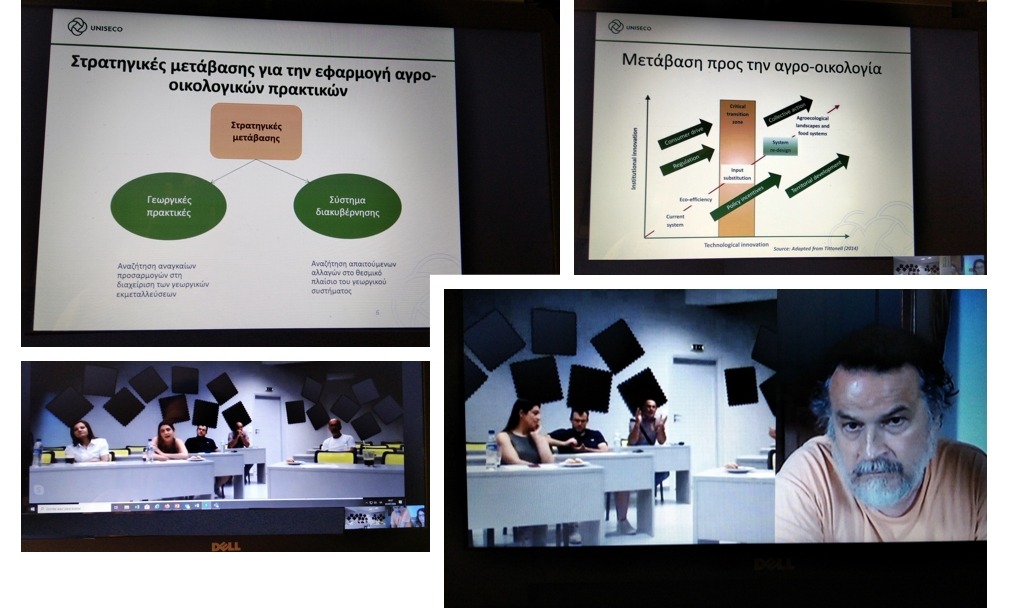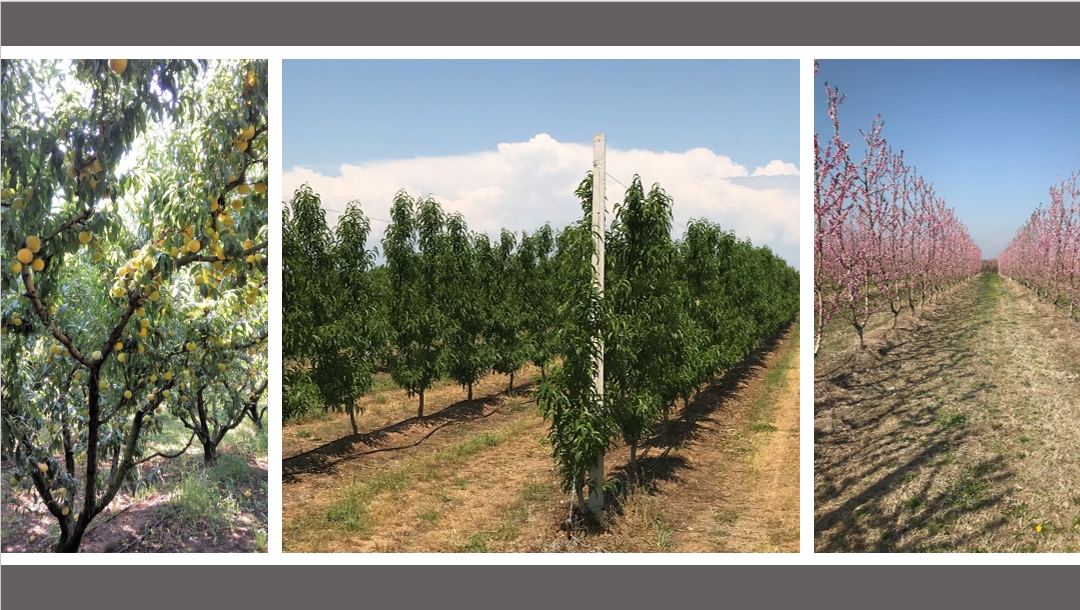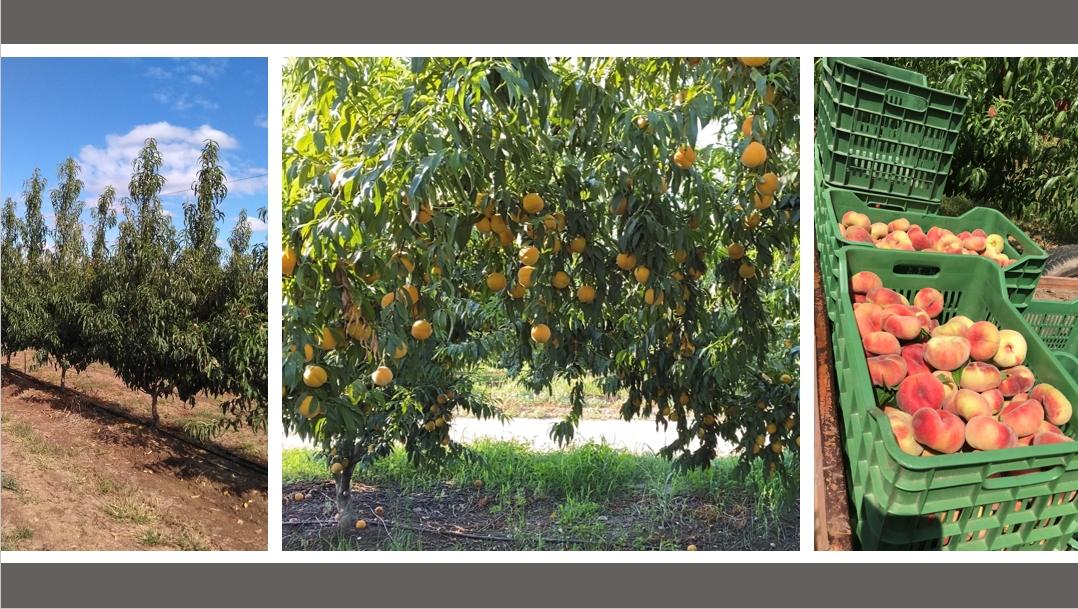Case study dilemma and research question
In a market oriented agricultural area of Greece, the key dilemma for farms is to increase the competitiveness of their produce and secure access to markets whilst protecting water quality and biodiversity.
How to sustain the long-term economic viability of farms whilst protecting the natural resources?

Key characteristics and sustainability issues of the farming system
The case study area is located in Imathia, a NUTS 3 regional unit, in Northern Greece. An environmental sustainability issue is the high pressure on natural resources due to pesticide use resulting in biodiversity loss and deterioration of water quality. On the other hand economic sustainability is closely dependent on the achievement of fruit with low to zero pesticide residues in order to maintain their position in a highly competitive market environment. The dominant farm production type is fruit orchards, mainly peach trees both for fresh fruit production and canning. There are approximately 19,000 hectares of peach orchards in Imathia. Out of them, 60% are cultivated under Integrated Farming, i.e. controlled irrigation and application of agrochemicals. Moreover a collective agri-environmental measure promoting Mating Disruption methods for pest control is implemented in 6,000 hectares of peach orchards.

Key actors involved
Key actors involved include farmers, representatives of local agricultural co-operatives/Producer Groups, the fruit processing industry, local authorities, input suppliers and agronomists-consultants.
Agro-ecological practices and sustainability trade-offs
A bundle of agro-ecological practices identified as being suitable for implementation in the Greek CS farming system includes:
- utilisation of green pruning residues and application of green manure;
- selection of varieties resistant to pest and diseases with marketable quality characteristics;
- transitioning to a narrower canopy system.
The simulation of the agro-ecological practices with the Decision Support Tools, showed a positive impact on biodiversity, encouraging genetic, species, and habitat diversity. Moreover, water quality seems to be improved, since the agro-ecological practices further reduce chemical inputs and prevent pollutants from leaching due to the use of cover crops and green manure. Lower application doses of agrochemicals and irrigation water may lead to reduced energy consumption, however this is likely to be counterbalanced by increased fuel consumption due to higher tree densities and increase in cover crop planting.
Concerning the economic indicators, it was found that investments in machinery and use of advanced techniques and equipment may improve the labour productivity of farms, decreasing the labour hours of workers, which in turn affects farm income generation.

Key barriers of implementation of agro-ecological practices
- Lack of targeted incentives and insufficient economic support as well as inadequate information on market conditions.
- Lack of confidence in agricultural co-operatives/Producer Groups and in general an important deficiency in social capital creation that prevents collaboration, mutual support and joint efforts.
- Lack of expertise and applied research results on modern pomology and agro-ecological practices in local conditions, creating a feeling of uncertainty and reluctance among farmers to embrace innovation and adopt novel agricultural practices.
Key strategies/actions to overcome barriers
- Financial assistance in the form of aid to collective investments in farm modernisation combined with agri-environmental schemes and advisory & training services.
- Formal agreements through contract farming with longer duration to establish trust and confidence between the different actors across the value chain (e.g. individual farmers or agricultural cooperatives/Producer Groups and fruit processing industry).
- Cluster of inter-professional collaborations and co-operation actions between farmers’ unions, agri-food value chains, advisory services and research community to facilitate knowledge exchange and increase competitiveness.

Key lessons learnt
- Initiatives relevant to agro-ecological farming are much easier to be adopted by collective schemes and strong agricultural cooperatives/Producer Groups among which, one can find pioneer members who are open to innovation and can motivate others.
- Innovative agricultural practices should be responsive to farmers’ needs and adapted to local conditions, specific crops and methods with detailed evidence on its economic and environmental benefits.
- The role of advisors is determinant, as they have the ability to link research and practice, raise awareness among farmers and properly advise them offering adequate technical support.
Download
- UNISECO H2020 issue brief: Pathways of peach growers for a transition towards sustainability: an eco-efficiency and input substitution tree crop-based farming system in Imathia, Greece
- UNISECO H2020 issue brief: Η πορεία της παραγωγής ροδακίνων προς τη βιωσιμότητα: βελτίωση της αποδοτικότητας με εισροές και πρακτικές φιλικές προς το περιβάλλον
- UNISECO H2020 policy brief: The role of collective efforts in fostering agro-ecological transition in Imathia, Northern Greece
- UNISECO H2020 policy brief: Η συμβολή των συλλογικών προσπαθειών στην προώθηση της μετάβασης προς την αγρο-οικολογία στην Ημαθία
Related newsitems
- https://uniseco-project.eu/news/97/gr-case-study-map-workshop-on-co-constructing-transition-strategies-towards-agro-ecology
- https://uniseco-project.eu/news/56/gr-case-study-map-workshop-on-assessing-policy-factors-and-evaluating-transition-drivers-and-barriers
Greek case study: The Imathia case

